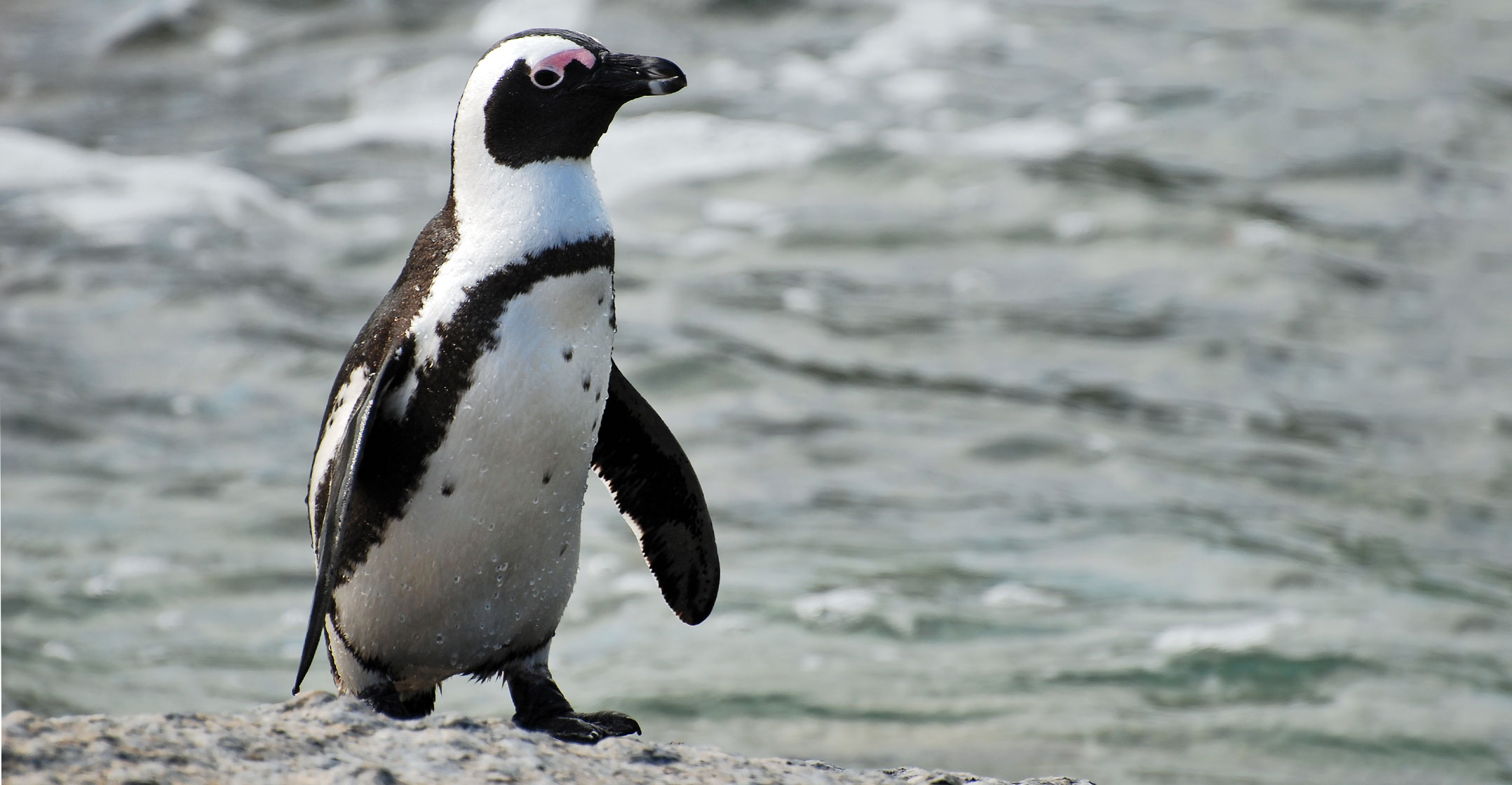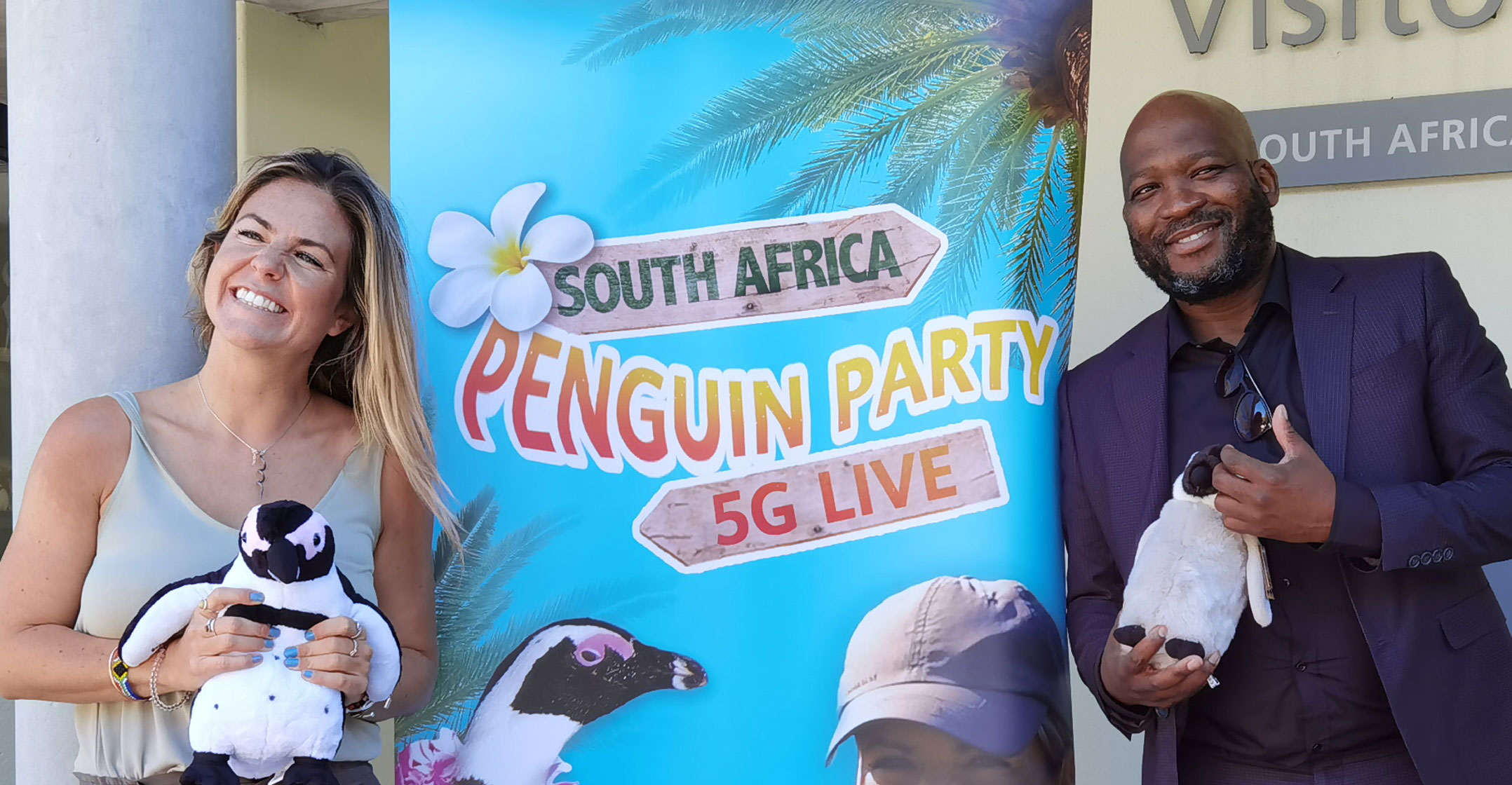
Huawei and Telkom have supported a 5G livestream of Africa’s endangered penguins to highlight role of 5G and supporting technology for conservation and environmental protection and other 5G use cases.
The livestream from Boulders Beach in Cape Town, home to the largest group of African penguins in South Africa, and hosted on Telkom’s 5G temporary network, was broadcast to Huawei’s global and local social media platforms.
Hosted by conservationist and wildlife TV presenter Lauren Arthur, the livestream not only gave viewers the chance to experience the unique penguin colony, it also illustrated 5G’s potential as an enabler of environmental conservation.
For the Boulders penguin colony, intensive conservation is becoming increasingly important. The African penguin is listed as endangered on the IUCN Red List of Threatened Species. As the largest grouping of the birds, the Boulders colony is therefore critical to the species’ survival. Its fragility was also underlined earlier this year when 64 birds died following a bee attack on the beach.
As Lunga Siyo, CEO of Telkom Consumer Business, pointed out, 5G technology could prove pivotal in allowing conservationists to monitor the colony.
“If we could set up a 5G camera here, the experts could watch the penguins’ every movement and of course help prevent another incident like the bee attack,” he said.
“In the future, 5G won’t only enrich people’s digital lives, but will also bring real benefits and change to humans, companies, society and the natural world,” he added. 5G can be especially beneficial in South Africa’s goal of achieving a digital economy. Siyo pointed out that sectors where 5G is starting to play a role include health, education, mining and the consumer market.

He added that Telkom is well poised to roll out 5G across South Africa.
“Telkom currently has the largest optical fibre network in South Africa and many cell masts are already 5G ready,” he said. “I don’t think it will be long before our users will be able to enjoy the convenience of 5G networks.”
Communications minister Khumbudzo Ntshavheni said post-pandemic travel is immersive, with opportunities for enhanced technologies to give tourists a digital-first experience of a destination. She commended Huawei for the streaming of the penguin colony as it was an innovative way to engage potential tourists from far and wide within Huawei’s reach, to stimulate foreign tourist interest in the area.
Huawei is also involved in several other conservation initiatives, including a project that uses upcycled Huawei devices and Huawei’s Cloud AI to protect rain forests.
About Huawei
Huawei is a leading global provider of ICT infrastructure and smart devices. With integrated solutions across four key domains – telecommunications networks, IT, smart devices and cloud services – we are committed to bringing digital to every person, home and organisation for a fully connected, intelligent world.
Huawei’s end-to-end portfolio of products, solutions and services is both competitive and secure. Through open collaboration with ecosystem partners, we create lasting value for our customers, working to empower people, enrich home life, and inspire innovation in organisations of all shapes and sizes.
At Huawei, innovation focuses on customer needs. We invest heavily in basic research, concentrating on technological breakthroughs that drive the world forward. We have more than 180 000 employees, and we operate in more than 170 countries and regions. Founded in 1987, Huawei is a private company fully owned by its employees.
For more information, please visit Huawei online at www.huawei.com/za or on Twitter, Facebook, LinkedIn or YouTube.
- This promoted content was paid for by the party concerned




